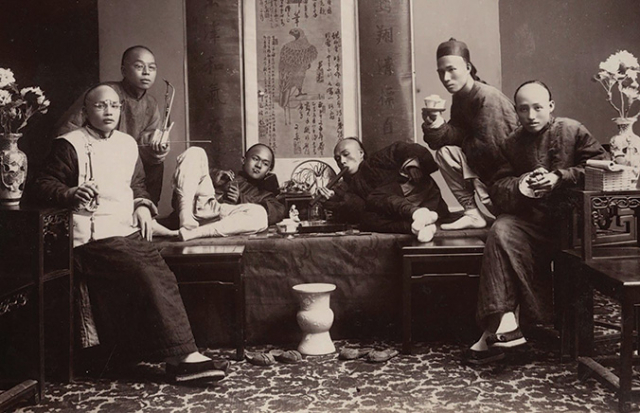The cultural biography of opium in China
Historian article

The cultural biography of opium in China
Zheng Yangwen shows that despite its association with trade, war and politics, opium was first of all a history of consumption.
Opium has fascinated generations of scholars and generated excellent scholarship on the opium trade, Anglo-Chinese relations, the two opium wars, and Commissioner Lin. The field has diversified in the post-Mao era as historians turned to examine prohibition, missionaries who led the drive, the regime that benefited from opium, while scholars of Southeast Asia have exposed opium ‘revenue farming’ that turned the region into an ‘offshore production zone for China’. This explosion of scholarship has greatly enhanced our understanding of the history and politics of opium. But the question that historians have shied away is who smoked opium, when and why, until the twenty-first century. We cannot fully understand opium or indeed the history of modern China without understanding how the demand for opium was generated.
The main problem lies with the ways in which opium has been perceived. To really understand why consumption grew despite waves of prohibition and humiliation at foreign hands, we must first decriminalise opium and depoliticise consumption. This article does so by tracing the origin, growth and explosion of the opium culture of consumption from its birth as a recreational commodity to its zenith as a social icon. Tracing the cultural biography of opium exposes the circumstances under which different classes of Chinese embraced opium; it will shed new light on history, economics and politics, and hence the making, of modern China...
This resource is FREE for Historian HA Members.
Non HA Members can get instant access for £2.49

